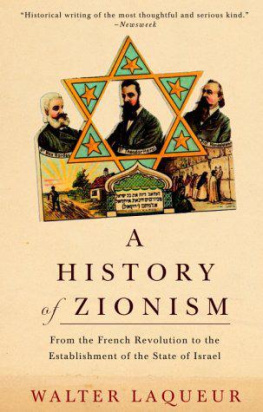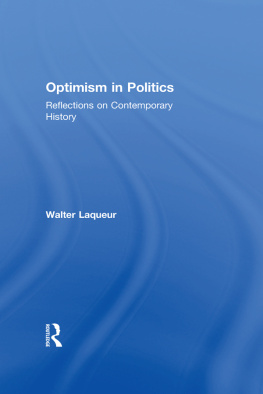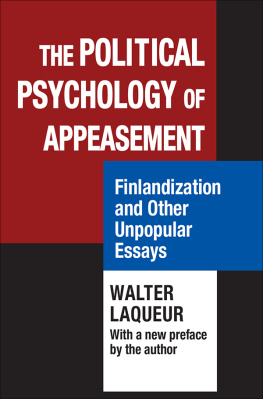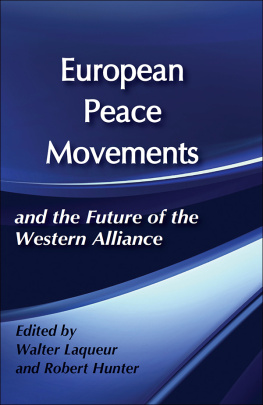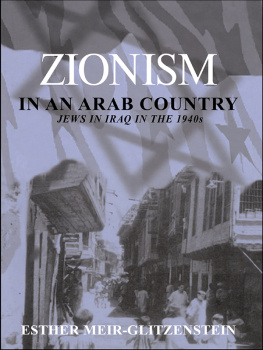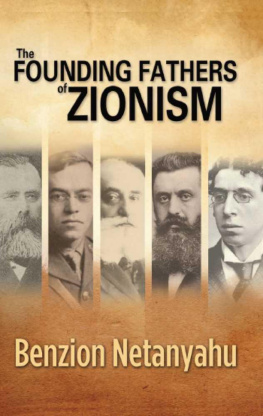Walter Laqueur - A History of Zionism: From the French Revolution to the Establishment of the State of Israel
Here you can read online Walter Laqueur - A History of Zionism: From the French Revolution to the Establishment of the State of Israel full text of the book (entire story) in english for free. Download pdf and epub, get meaning, cover and reviews about this ebook. year: 2003, publisher: Schocken, genre: History. Description of the work, (preface) as well as reviews are available. Best literature library LitArk.com created for fans of good reading and offers a wide selection of genres:
Romance novel
Science fiction
Adventure
Detective
Science
History
Home and family
Prose
Art
Politics
Computer
Non-fiction
Religion
Business
Children
Humor
Choose a favorite category and find really read worthwhile books. Enjoy immersion in the world of imagination, feel the emotions of the characters or learn something new for yourself, make an fascinating discovery.
- Book:A History of Zionism: From the French Revolution to the Establishment of the State of Israel
- Author:
- Publisher:Schocken
- Genre:
- Year:2003
- Rating:5 / 5
- Favourites:Add to favourites
- Your mark:
- 100
- 1
- 2
- 3
- 4
- 5
A History of Zionism: From the French Revolution to the Establishment of the State of Israel: summary, description and annotation
We offer to read an annotation, description, summary or preface (depends on what the author of the book "A History of Zionism: From the French Revolution to the Establishment of the State of Israel" wrote himself). If you haven't found the necessary information about the book — write in the comments, we will try to find it.
A History of Zionism: From the French Revolution to the Establishment of the State of Israel — read online for free the complete book (whole text) full work
Below is the text of the book, divided by pages. System saving the place of the last page read, allows you to conveniently read the book "A History of Zionism: From the French Revolution to the Establishment of the State of Israel" online for free, without having to search again every time where you left off. Put a bookmark, and you can go to the page where you finished reading at any time.
Font size:
Interval:
Bookmark:

To the memory of my parents
1. 2. 3. 4. 5. 6. 7. 8. 9. 10. 11.
GLOSSARY
Agudat Israel religious-orthodox, non-Zionist political movement, founded 1912. Ahdut Ha avoda (Labour unity) Jewish workers party, 1919-30. Aliya immigration to Israel. Betar (Brit Trumpeldor) Revisionist youth organisation, founded 1923. Brit Shalom (Peace Covenant) Jewish association advocating Jewish-Arab rapprochement, c. 1925-33. Endziel the final aim (of the Zionist movement). Galut diaspora. Gdud Avoda Labour Legion (1920-7). Gegenwartsarbeit Zionist work in the diaspora. Hagana (defence) Jewish defence organisation. Halukka distribution of alms from abroad among the orthodox community in Jerusalem. Halutz pioneer. Hapoel Hatzair (The Young Worker) Jewish workers party (1905-30). Hashomer (The Watchman) Jewish watchmen organisation before the First World War. Hashomer Hatzair (The Young Watchman) left-wing socialist movement, founded as a youth movement in 1913. Haskala enlightenment. Hassidim mystical-religious trend in east European Jewry. Hatiqva (hope) Zionist and Israeli national anthem. Heder primary religious school. Histadrut the Israeli General Federation of Trade Unions, established 1920. Hoveve Zion (The Lovers of Zion) pre-Herzlian Zionist organisation. Irgun Zvai Leumi (IZL) national military organisation (Revisionist), 1931-48. Kibbush Avoda Conquest of (Jewish) Labour. Kibbutz collective agricultural settlement. Kvutza collective agricultural settlement. Lehi Fighters for the Freedom of Israel (Stern group), 1940-8. Mapai Labour party, founded 1930. Maskil supporter of the Haskala. Mizrahi Zionist religious party, founded 1902. Moshav Ovdim cooperative agricultural settlement. Poale Zion (The Workers of Zion) Socialist party, established 1903. Shekel ancient coin, annual membership fee providing the right to vote for the Zionist Congress. Vaad Leumi National Council (of Palestinian Jewry), 1920-48. Yishuv (settlement) the Jewish population of Palestine. Zohar the Revisionist Party, founded 1925.A note on spelling
Zionist leaders of East European origin have used at different stages of their life various spellings of their names in their publications. An attempt to unify the spelling has been made, but it has been impossible to achieve full consistency; the same applies to the transliteration of Hebrew names.
to the 2003 Edition Theodor Herzl has entered political history as the author of two small books: a political pamphlet titled Der Judenstaat (The Jewish State) and a work of political science fiction he called Altneuland (Old New Land). Altneuland , published in 1902, describes the visit to Palestine, after an absence of many years, of two Europeans sympathetic to the Zionist cause. Confronting a Jewish state for the first time, they are awestruck by the enormous achievements that have been made, over and above what even the most enthusiastic visitors could reasonably have expected. Had they postponed their visit a bit longer, their amazement would have been even greater. Even those who knew Palestine in 1948, the year the Jewish state actually came into being, would not recognize it today. The number of Jews living in Palestine in 1948 was about half a million; it has increased tenfold since. Palestine was a tiny community at that time; Israel today is more populous than half a dozen European countries, including Norway and Finland. It absorbed during its first years of statehood a population of immigrants three times larger than the population already living in the country, a feat unique in the annals of mankind. Many hundreds of new cities, towns, and suburbs came into being. While for years Israel depended on outside financial help, it gradually became economically independent. Its standard of living is comparable to that of many European countries, it has a vibrant cultural life, with many universities, theaters, and symphony orchestras, and its scientific institutions are second to none (as indeed Herzl had envisaged). In reports produced by international organizations that measure various types of economic and social progress, Israel usually appears among the first ten or twenty countries. But the quality of its domestic political life is far from ideal. There are too many political parties, and there has been corruption at even the highest levels of government; minorities have not always been treated fairly. But elections are still free, and the judiciary is still independent. The media enjoy almost complete freedom. It is the only democracy in a part of the world in which democracies are conspicuously absent. Militarily, Israel does not depend on outside help but has armed forces capable in every respect of defending itself. And yet the Jewish state finds itself in serious trouble during the sixth decade of its existence. Contemporary visitors to Altneuland , having been duly impressed by the extraordinary achievements, are bound to ask whether the society that came into being still corresponds in any significant way to the dreams of Herzl and the other early leaders of the Zionist movement. Let us be realistic: Altneuland was, of course, a utopia, and utopias are seldom realized. In the inevitable collision between dreams and realties, realities inevitably prove stronger. Herzl and his contemporaries did not really expect the Jewish state to be somehow superior, more highly accomplished, more ethically motivated than other countries; they were primarily looking for a refuge for the persecuted Jewish people and were aware of how difficult it would be simply to build a country like all others. If Israel has not lived up to expectations, it is certainly true that many of the countries that came into being after World War II have been disappointments to those who envisioned them and fought to bring them into being. Some of the basic reasons for such disappointments are rooted in history, and it would be pointless to put the blame on human shortcomings. It was the historical tragedy of Zionism (as I note in the last chapter of this book) that it appeared very late on the international scene, but it could not have appeared earlier on. The great majority of Jews did not want a state of their own before the twentieth century, and when storm clouds appeared on the horizon (and it is the historical merit of Zionism that it recognized this earlier than all others), when it became increasingly urgent to find a refuge for the Jews of Europe, the gates of Palestine were virtually closed. Nor was there sufficient willingness on the part of European and American Jewry to invest energy and financial resources in building a Jewish national home. When the war began, a few hundred thousand Jews had found refuge in Palestine, but millions more eventually perished. At the end of the war the great reservoir of European Jewry that the Zionists had hoped would build the Jewish state had disappeared. The Jews of Palestine wanted a state of their own because there was no realistic political alternative. To almost everyones surprise they resisted the onslaught of the armies of the neighboring Arab countries that resulted when they declared their independence. But it was also clear that the demographic base necessary for a viable state was far too small, and so the ingathering of the exiles became the commandment of the hour. This led to a profound social and cultural change in the composition of the population of the new country. Zionism had been a European Jewish movement. Among the Jews in the Oriental countries there was a messianic religious belief in the ultimate return to Zionor at least a feeling of historical attachment to itbut there was no overwhelming urge to move to Palestine. Zionist organizations in those countries were very small or nonexistent. There was, however, an increase in anti-Semitism in the Middle East and North Africa during World War II and during the years leading up to it, and there was also a rise in those countries of a xenophobic nationalism. Foreigners were expelled from Egypt, and there were pogroms in Iraq, Libya, and elsewhere. The majority of Jews in these countries would have had to leave anyway, and for a considerable number of them (not, however, the well-to-do and the intelligentsia) Israel was the obvious haven. It is doubtful in retrospect whether this was true with regard to Moroccan Jews; they were the largest of the Jewish communities of the Middle East and North Africa and lived (as many of them later argued) more or less in peace with their neighbors. By urging this community to move to Israel, the enthusiastic Zionist emissaries created problems which, in all probability, they could not have predicted. North African immigrants complained about discrimination and exploitation. This was certainly not true on the political levelpresidents of Israel came from among their ranks, as well as foreign and defense ministers, army chiefs of staff, etc. But a great many of the Sephardic immigrants were unhappy in their new homeland, complaining about their inferior social status and their dismal living conditions. They were not Zionist pioneers, as the early settlers from Eastern and Central Europe had been, and their expectations were high. They were unwilling to put up with the living conditions in the hastily constructed development towns to which they had been sent. They expected the state to take better care of their social and economic needs, but the state was not financially able to do so. And even if the state had done more, they would still have had legitimate complaints about European paternalism and a lack of national respect for their culture and traditions. By and large, Sephardic feelings of solidarity with their Ashkenazic coreligionists were strictly limited. Eventually they established their own political party to defend their interests, a party that while anti-Arab was not classically Zionist in character. In the wake of the collapse of the Soviet Union in 1991, approximately one million Soviet Jews arrived in Israel. Few had expected this, and I had certainly not imagined that a Russian translation of this book would appear in Moscow in my lifetime. The great majority of former Soviet citizens who arrived in Israel in the 1990s (in contrast to the Soviet Jews who had arrived in the preceding two decades) were not Zionists; a significant percentage were not even Jewish (the spouses, children, or grandchildren of Jews, they were eligible for Israeli citizenship under Israels Law of Return). They came simply in the hope of creating a better life for themselves and their families. Yet their economic absorption into Israel proceeded more smoothly than most had envisioned, most likely because they were better educated than the Sephardic Jews who had arrived decades earlier. The difficulties with the absorption of Soviet Jews into Israeli society exist on a different level: many of them proudly maintain their own cultural traditions, and they show little interest in shedding them to become part of a homogeneous Israeli society. We are a people. One people, Herzl had declared to thunderous acclaim in a famous speech at one of the early Zionist congresses. But was this still true? There certainly had been a single, united Jewish people at one time, but Zionism had probably come too late to reunite it. Over the centuries of exile its various branches had gone their own ways. Jews throughout the world still shared some common beliefs and traditions, and they felt a degree of responsibility for one another during times of crisis. But most of them no longer believed in the biblical notion of redemption and in the ancient prophets promised rebuilding of the Israelite Kingdom. The Jewish community in Palestine in 1948 consisted largely of a Labor Zionist cultural and political elite; massive influxes of new immigrants, most of them not Socialists and/or Zionists in the classic political sense, have led to societal polarization. The pre-state Zionists had succeeded in creating one of the worlds most egalitarian societies; today Israel rivals only the United States among developed nations as the country with the most pronounced disparities between the wealthy and the poor in income and economic status. This trend has been accompanied by an equally unfortunate ideological polarization. In every democracy there is a political left wing and a political right wing; often there are also extreme left-wing and extreme right-wing fringe elements. Although the issues at stake in Israel no longer involve capitalism versus socialism (in fact, the wealthy suburbs vote overwhelmingly for the Labor party, while the economically disadvantaged development towns opt for the right-wing parties), the growing influence of both left-wing and right-wing extremists portend a national crisis. Over the past thirty years a belief has gained ground among the right wing that the entire historical Palestine is ours by divine right. This has resulted, among other things, in the mushrooming of settlements in areas of the West Bank and Gaza that have been occupied by Israel since the Six-Day War in 1967. Most of them do not make sense either economically or militarily, and defending and guarding them ties down a considerable part of Israels army. They are also a major obstacle on the road to some form of peaceful coexistence with the Palestinians. The pseudo-religious mysticism that rationalizes their existence would have been wholly alien to earlier generations of Zionist thinkers who, while giving all due deference to traditional religious practices, were profoundly secular in outlook and would have regarded with abhorrence the intrusion of religion into politics. If the lack of governmental planning in advance of the ingathering of the exiles in the 1950s was a serious mistake, the failure of the State of Israel in those years to adopt a written constitution that provided for a division between religion and state was another. This new manifestation of right-wing nationalism is not, as Herzls Zionism had been, a product of the Enlightenment; it is not connected with the struggle for political liberty and a free society. It fears alien influences, is antagonistic to strangers, and does not count individual freedom among its primary concerns. As one of the ideologues of this new creed put it, This Zionism does not seek to solve the problem of the Jews by setting up a Jewish state, but it is an instrument in the hands of the Almighty which prepared the people of Israel for their Redemption. Pre-state Zionism had not been based on religious zealotry and chauvinism. And even the religious Zionism of that era had stressed the international, universal message of Torah and redemption, rather than national egotism. To the Revisionist Zionist leader Vladimir Jabotinsky, a nationalist in the liberal nineteenth-century mold, the anti-Western, isolationist character of todays right-wing Zionism would have been incomprehensible and repugnant. What caused such changes to the character of post-independence Zionism? Probably it was the annus mirabilis of 1967, which culminated in a nationwide abandonment of a sense of reality regarding the newly acquired land. The rise of worldwide fundamentalism might also have played a part, as well as a decline in the quality of national leadership. Pre-state Zionism had attracted formidable intellects and visionary leaders. In recent decades there has been a notable decline in the quality of national leadership; those who could and should have been leaders were put off by the rough-and-tumble of Israeli politics and looked instead for fulfillment in other fields of endeavor. Such a decline in the quality of leadership has taken place in countries throughout the world. But a newly created and embattled country such as Israel, a country by no means universally accepted, needs an enlightened and farsighted leadership more than any other. And as if this were not enough, post-independence Zionism has been afflicted by two other plagues, essentially not new but appearing in new guises. One is the ultra-Orthodox, or haredi , camp, which in Eastern Europe had rejected and fought Zionism tooth and nail from the very beginnings of the movement. In Palestine, too, there had long been a small anti-Zionist ultra-Orthodox community in Jerusalems Mea Shearim neighborhood and in a few other areas as well, which kept strictly apart from the Jewish community and its organizations. But since 1948 ultra-Orthodox neighborhoods have greatly expanded (due in part to the high birth rate in ultra-Orthodox families). The numbers of adult men attending yeshivot (religious seminaries) has increased dramatically between 1948 and the present day. All this would have mattered little if, as in the pre-state days, the haredim would have essentially kept to themselves. But they have instead become increasingly involved in the Israeli government and have used their increased numbers to compel the state to support their institutions and to finance their way of life. (They refuse to serve in the army and many of them are not gainfully employed.) In recent years they have begun to impose their religious restrictions on the rest of the Israeli population, causing bitter conflicts and something akin to a Kulturkampf in Jerusalem and in other cities. On a certain level, Zionism had been founded as an expression of opposition to the way of life of the Eastern European ghetto, and one of its main missions in Israel was to create a productive society in contrast to the parasitical life so commonly associated with the shtetl. Yet the ghetto and its mentality proved to be resilient, and it has come back to haunt the Zionists in the country they had created. Given the fragmentation of Israeli political life, the ultra-Orthodox have achieved a degree of influence, in the Israeli Knesset and in municipalities, that is out of proportion with their numbers. They have also succeeded in extending their influence beyond the Ashkenazic community and into some sections of the Sephardic Jewish community, even as they disdained the latters ancient religious and cultural practices. Zionisms other long-time antagonist is also an old acquaintance that now appears in a new guise and has been renamed post-Zionism. In the early years of the twentieth century, Communists, Trotskyites, and related political groups waged ideological war against Zionism (including left-wing Zionism) because of what they termed its reactionary, imperialist, and colonialist character. The Jews, they believed, had no right to a state of their own because this could be achieved only by expelling another people who were already living on the land they claimed as their own. Zionists were either being dishonest or deluding themselves when they described Palestine as a land without people. But the Zionists had never sincerely argued this, and Arabs do appear in Herzls Altneuland. When Herzl convened the first Zionist Congress in 1897 the inhabitants of Palestine numbered approximately 500,000 and included, in addition to Jews (approximately eight percent of the population) and Muslims, Christian Arabs, Greeks, Armenians, and members of other ethnic and religious groups. Perhaps Herzl might be forgiven for assuming that the presence of a few hundred thousand people did not present an insurmountable obstacle to his plans. The 1896 edition of Baedekers Guide to Vienna gives the number of the inhabitants of the city in which Herzl lived as 1,364,500; in other words, the non-Jewish residents of Palestine totaled a little more than one-third of the population of the Austrian capital. The next sentence in Baedekers guide helps to explain why the idea of Zionism occurred to Herzl in the first place. The stated population figures, it says, includ[e] 118,000 Jews and 22,651 soldiers. There lived in Vienna at the time tens of thousands of Poles, Czechs, Croats, Hungarians, Italians, and Slovenians, among numerous other national groups. But only the Jews received special mention; perhaps they were thought to be transients, like the soldiers mentioned along with them. Marxism went out of intellectual fashion in the last quarter of the twentieth century, but the impulses underlying it did not. Hence the appearance of new socio-political concepts, such as post-colonialism, of which post-Zionism is an offshoot. (The actual term post-Zionism is, of course, value free; it appears on the first page of the preface to the first edition of this book, which was published well before contemporary Israeli post-Zionists arrived on the scene.) The contemporary post-Zionists belong to a generation of Israeli academics that has never personally experienced anti-Semitism, for whom the Holocaust is not a real historical experience, who did not have to face the danger of destruction and to flee Europe to save their lives. Their rejection of Zionism (and frequently also of Israel) is, nevertheless, psychologically understandable as a rebellion against their parents and grandparents generations. The post-Zionists deconstruction of Zionist ideology resulted in a number of discoveries that they considered to be of great importance. They found that many of the stories taught in school and based on the Old Testament were not rooted in fact but in mythology. It was not a certainty that the Israelites had ever lived in Egypt or crossed the Red Sea, and Joshuas trumpet had in all probability not caused the crumbling of the walls of Jericho. King Davids kingdom had not been a major nation but was most likely a small principality; and there was even some doubt as to whether or not King David had ever really existed. In their enthusiasm, these post-Zionists tended to forget that the origins of every religionindeed, of any nation from ancient Greece and Rome onwardis not grounded in historical fact but, rather, is shrouded in myth. Testing their theories against more recent historical events, they now doubt whether the mortally wounded Yosef Trumpeldor ever said at Tel Hai that it was good to die for ones country. Sometimes their arguments were inconsistent: on the one hand they maintain that the Zionists should never have settled in Palestine in the first place, but at the same time they blame them for not having done enough to save European Jewry during World War II. According to them, Zionists persuaded Jewish displaced persons to move on to Palestine after World War II even though the refugees were reluctant to do so. During Israels War of Independence, Zionists had not treated Palestinian Arabs with sufficient humanity but, instead, either directly or indirectly engineered the expulsion of hundreds of thousands of them from their villages and then either occupied or destroyed their homes. Academicians engaging in post-colonial studies were not many in number, but they influenced Israeli society and educational policy to the extent that the latest crop of Israeli schoolbooks included a picture of Gamal Abdul Nasser but not one of David Ben Gurion. The problem with post-Zionism was not that its premises were incorrect, but that what was correct was not new, and what was new was not correct. Post-Zionists seemed to be unwilling to acknowledge the fact (and here they deviated from Marxists, who were far more realistic in this respect) that no nation has ever come into being by friendly persuasion or through a legal contract. Nation-states are rarely born without violence. They have from time immemorial produced innocent victims, and there is no reason to assume that the birth of an Israeli nation would be any different in this respect. This book is a history of Zionism, not of the State of Israel and even less of the ongoing Israeli-Arab conflict. But the conflict cannot be ignored, for it has had a considerable effect on both pre- and post-1948 Zionist ideology. Palestinian Arabs were deprived of a country of their own as a result of the establishment of Israel, but many Israelis found it difficult to look at the situation from their point of view: Did they not live better than before? Was their lot not preferable to that of Arabs in Israels neighboring countries? The Palestinian Arabs, on the other hand, failed to understand that their misfortune was at least in part of their own doing, since they had rejected the initial idea of establishing a single bi-national state in Mandatory Palestine, and then went on to reject all other suggested two-state compromises. It was the misfortune of Zionism that its ancient homeland should be located in the middle of a particularly troubled part of the world, one that has shown in modern times a particular ineptitude in establishing democratic societies and in making social and economic progress. The travails, the frustrations, the resentments of the people of the Muslim and Arab world are well known and need not be discussed in detail here. The very existence of a Jewish state within this world is seen by these people as a provocation, and it is not surprising that Israel has borne the brunt of much of their rage and frustration. It is more than doubtful that a conflict between Israelis and Palestinians could have been prevented, given the fact that two peoples were claiming the same land. But far from trying to defuse the conflict and prevent its spread, Israeli policy has often added fuel to it, thus increasing the dangers confronting the state. Prior to 1967 there was nothing for Israel to discuss with its Arab neighbors because they rejected the very existence of Israel. But after the Six-Day War Israel was in a position to make concessions; it waited for Arab initiatives that never came. But why should it have surrendered the occupied territories in the West Bank and Gaza if the Arabs were still unwilling to make peace? For the simple reason that Israel could not indefinitely impose its rule over so many people who did not want to live in a Jewish state and at the same time maintain the democratic character of the country. Establishing Jewish settlements in the middle of a hostile Arab population was not an answer; on the contrary, it aggravated the problem. Sooner or later the settlements would have to be given up, and the longer this was delayed, the more painful it was going to be. The second sin of omission concerned the Arab citizens of Israel. There is no certainty that they would have become Israeli patriots if they had been given full equality, or even if preferential treatment had been given to them. But only a halfhearted attempt was made to integrate them into Israeli society, and there were too many promises that were not fulfilled. The question of Jerusalem illustrates best the enormous difference between historical Zionism and the ideology that has replaced it. Jerusalem contains the holy places of three world religions, and elementary prudence if not basic tolerance should have prevented declarations according to which Jerusalem was to remain forever undivided under Israeli rule. It was in any case an empty declaration, for in actual fact Jerusalem is of course a divided city. When Herzl first visited Jerusalem he saw only the musty deposits of two thousand years of inhumanity, intolerance, and impurity; he perceived superstition and fanaticism on all sides. It was not surprising that he suggested Haifa as the capital of the new Jewish state. But it was not only Herzl, the assimilated Jew, who reacted in this unsentimental manner. Chaim Weizmann always feared becoming involved in the Jerusalem imbroglio. And because their emotional attachment to the city was not overwhelming, David Ben Gurion and other leaders of the second aliya did not visit Jerusalem for the first time until two or three years after their arrival in the country. For many years not a single pre-state Zionist leader chose to live in Jerusalem. For them, Jerusalem symbolized the negative past of Jewish history, that part of the tradition from which they wanted to disassociate themselves. The idea that Jerusalem was the beginning and the end of Zionism, that Israel could not exist without having full sovereignty over the entire city, emerged only after 1967 and with the growth of a religious fanaticism and aggressive nationalism that had more in common with the ideology of the Muslim Brotherhood than the founding fathers of Zionism. And so, guarding the holy sites has become a nightmare and Jerusalem itself has become a dangerous flashpoint. The insanity of a few religious fanaticsJewish, Muslim, or Christianhas the potential for transforming a local conflict into a religious war with incalculable consequences. International opposition to Zionism reached a new climax in June 1975 with United Nations Resolution 3379, which equated Zionism with racism. This resolution was revoked after a decade, but the attitude underlying it did not change. At the United Nations World Conference Against Racism, which was held in Durban, South Africa, in the fall of 2001, Zionism was placed at the top of the list of obstacles to human rights. Israels occupation and settlement of the West Bank and Gaza plays into the hands of those who are opposed to the very existence of a Jewish state, and it is used by them not only to delegitimize the State of Israel, but for other, more nefarious purposes. If in the decades after World War II blatant anti-Semitism has gone out of fashion, anti-Zionism has become an acceptable, politically correct outlet for it. Within Israel the temptation is great to blame all its woes on an anti-Semitic world that has never been in favor of its existence. But, to a considerable extent, the fault lies within Israel itself: the mistakes it has made, its shortsightedness, its failure to accept the fact that it is a small nation that must make compromises to survive in a region full of hostile, powerful neighbors. The Jewish genius has manifested itself over the centuries in many areas, but political wisdom has not been among them. This is perhaps the inevitable result of having been deprived for two thousand years of the experience and the responsibility of political statehood, but it is vitally needed now, as Israel and, indeed, the world as a whole face a new period of unprecedented danger.
Font size:
Interval:
Bookmark:
Similar books «A History of Zionism: From the French Revolution to the Establishment of the State of Israel»
Look at similar books to A History of Zionism: From the French Revolution to the Establishment of the State of Israel. We have selected literature similar in name and meaning in the hope of providing readers with more options to find new, interesting, not yet read works.
Discussion, reviews of the book A History of Zionism: From the French Revolution to the Establishment of the State of Israel and just readers' own opinions. Leave your comments, write what you think about the work, its meaning or the main characters. Specify what exactly you liked and what you didn't like, and why you think so.

